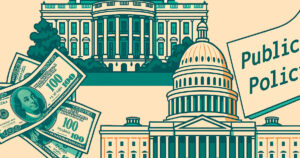This week’s Wisconsin Supreme Court election has emerged as a defining moment in American politics, highlighting the electorate’s decisive rejection of billionaire influence, particularly that of Elon Musk. Despite Musk’s unprecedented financial involvement and controversial tactics, the voters’ response underscores a commitment to democratic integrity over monetary sway.
Elon Musk’s Unprecedented Financial Involvement in Wisconsin’s Supreme Court Special Election
Elon Musk’s engagement in the Wisconsin Supreme Court race was both substantial and contentious. Serving as the head of the Department of Government Efficiency (DOGE) under President Donald Trump, Musk invested over $25 million to support conservative candidate Brad Schimel. This contribution was part of a broader $100 million total expenditure by all players, making it the most expensive judicial election in U.S. history.
Controversial Tactics and Legal Challenges
Beyond financial contributions, Musk’s campaign strategies raised ethical and legal concerns. He initiated a petition drive offering financial compensation to voters opposing “activist judges,” reminiscent of tactics used during the 2024 presidential election. Musk also announced plans to personally distribute $1 million checks to two voters who had cast their ballots. Wisconsin Attorney General Josh Kaul swiftly filed a lawsuit to block these payments, alleging violations of state election laws. Musk adjusted the criteria for the giveaways to circumvent legal issues, and the Wisconsin Supreme Court declined to intervene, allowing the distributions to proceed.
Voter Turnout and Public Response
The special election witnessed a historic voter turnout, with approximately 2.36 million ballots cast, representing nearly 51% of the state’s voting-age population. This surge led to ballot shortages in several Milwaukee polling stations, underscoring the electorate’s heightened engagement. Many analysts attribute this increased participation to a collective repudiation of Musk’s overt attempts to influence the election.
Electoral Outcome and Its Implications
Despite Musk’s extensive financial and personal involvement, liberal Judge Susan Crawford secured a decisive victory over Schimel, maintaining the court’s 4–3 liberal majority. This outcome reflects a broader public sentiment against the perceived encroachment of billionaire influence in democratic processes. Democratic leaders have seized upon Musk’s failed intervention, with some mockingly inviting him to campaign for their Republican opponents, suggesting his association may be politically detrimental.
Repercussions for Musk and the Political Landscape
This election’s results have prompted speculation about Musk’s future role in politics and his position within the Trump administration. Reports indicate that President Trump may be considering Musk’s departure from his advisory role, reflecting concerns about Musk’s diminishing public favorability and its potential impact on the administration’s image. Musk’s aggressive cost-cutting measures and controversial public behavior have also drawn criticism from Republican lawmakers, further isolating him within political circles.
Broader Implications for Money in Politics
The Wisconsin election serves as a poignant illustration of the rejection of financial influence in swaying electoral outcomes. Despite unprecedented spending, the electorate prioritized candidate qualifications and ethical considerations over monetary persuasion. This scenario underscores the necessity for comprehensive campaign finance reforms to safeguard democratic integrity.
A Resounding Affirmation of Democratic Values
The Wisconsin Supreme Court election stands as a testament to the electorate’s resilience against undue financial influence. The decisive rejection of Elon Musk’s interventions reflects a collective commitment to preserving the sanctity of democratic processes. This event serves as a clarion call for continued vigilance and advocacy to ensure that political power remains a reflection of the people’s will, untainted by the disproportionate sway of unchecked wealth.
Take a Stand. Join the Movement. Defend Democracy.
It’s time to turn this momentum into lasting change. The American people have shown that our democracy is not for sale, and now we must demand the structural reforms that protect it. Join the veteran-led, non-partisan Money Out of Politics Movement today to stand up against billionaire interference, corporate influence, and political corruption. Whether you’re a veteran, a concerned citizen, a student, or a policymaker, your voice matters in this fight. Join the movement, spread the word, and march with us on July 27, 2025. Together, we can restore integrity to our government and make it truly accountable to the people.


